Where to place a peace lily in your home for balance, prosperity and positivity, according to Feng Shui experts
Plants play a significant role in Feng Shui, and when placed with intention, peace lilies can enhance positive energy
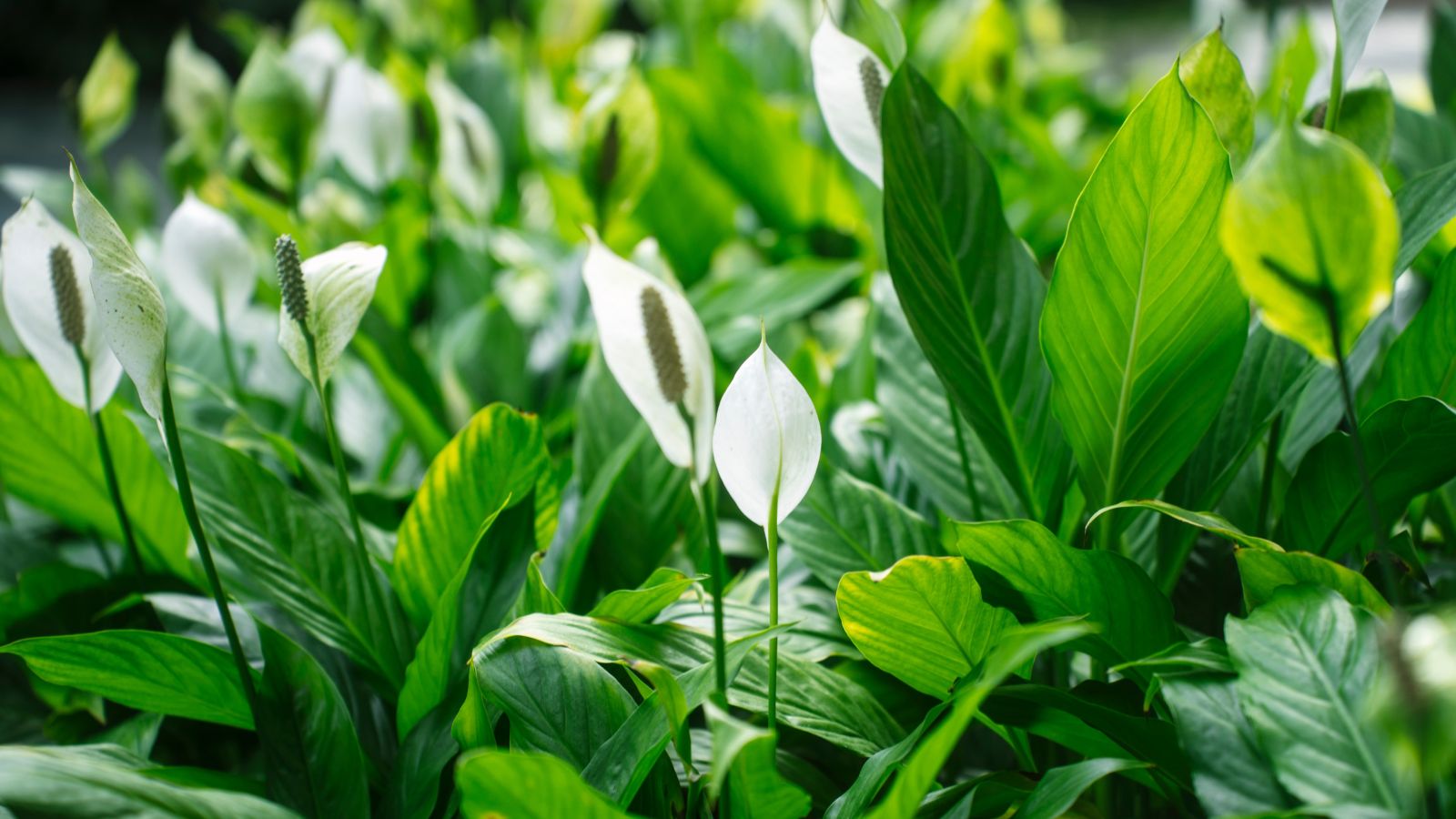

The peace lily is a cherished plant in Feng Shui, with its lush green leaves and elegant white blooms, it symbolizes peace, renewal, and positive energy flow. Beyond its beauty, the peace lily is valued for its air-purifying qualities, helping to create a clean, fresh atmosphere, essential for circulation of positive energy (Chi). By removing toxins and enhancing the overall well-being of a space, this plant promotes balance, purification, and serenity.
In Feng Shui, a thriving, well-placed peace lily can amplify harmony, prosperity, and vitality, while a neglected or unhealthy plant can contribute to stagnant energy, making peace lily care essential. Thoughtful placement of this Feng Shui plant is key to unlocking its full potential. By setting your intentions and using Feng Shui energy mapping to put it in the right areas of your home, you can strengthen its ability to foster peace, prosperity, and positivity.
Whether you place your peace lily in a living room for harmony, a home study for productivity, or an entryway to welcome fresh energy, thoughtful positioning can enhance a peace lily's impact, creating a more nurturing, high-vibration home. We spoke to Feng Shui experts to guide you on the best locations and how to place your peace lily according to your intentions.
Why are peace lilies an auspicious choice according to Feng Shui?
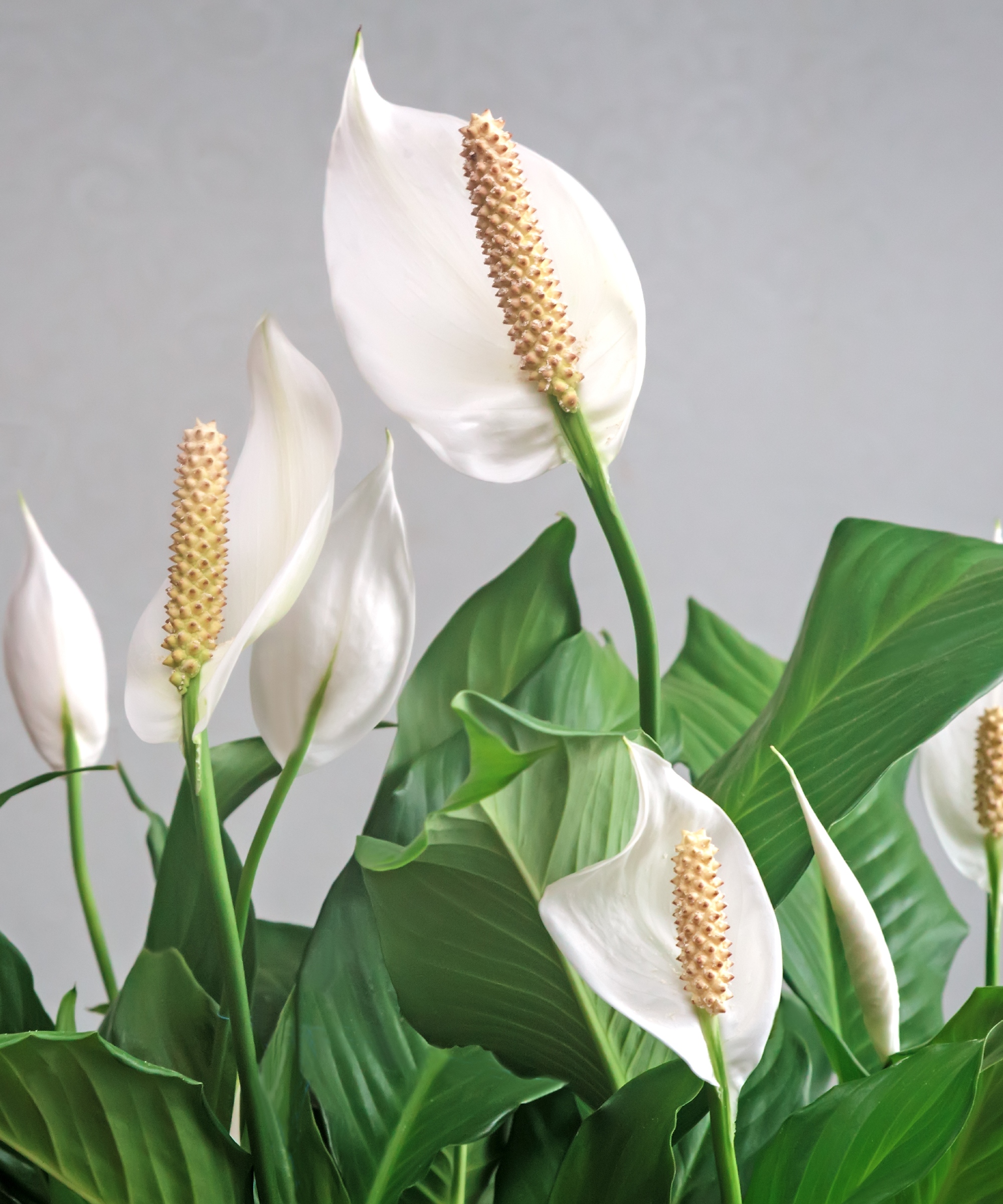
Anjie Cho, practising architect, Feng Shui and Dharma arts teacher, and author, explains, 'The peace lily is especially auspicious because it is a flowering plant that is so easy to care for. Having a plant that flowers well and thrives in most conditions builds confidence and reminds us of all the positive energy available to us. We don't always have to go for the hard path, sometimes the straightforward one brings tremendous growth and joy. The peace lily also brings the wood element for growth, healing, and flexibility.'
‘Peace lilies in Feng Shui embody yin-yang harmony,’ explains Dee Oujiri, Feng Shui strategist and biophilic design practitioner. ‘The stems represent merging growth while the blooms are a representation of serene purification. Their blooms act as “chi bridges”, dissolving emotional clutter, external stress, which makes them perfect guardians for any doorway.’
Additionally, interiors therapist and Homes & Gardens Feng Shui expert contributor Suzanne Roynon, says: 'The practice of Feng Shui uses a lot of common sense, and naturally you’ll see flourishing peace lilies in many Feng Shui homes.' Peace lilies are considered auspicious – not just for their symbolic meaning but for their tangible benefits.
Suzanne explains, 'By reputation the peace lily is something of a "cure all". NASA has the peace lily in the top 10 of purifying plants thanks to its ability to filter polluted air through its leaves, refreshing the atmosphere in the process. Studies suggest it absorbs mold spores and pollutants like trichloroethylene, formaldehyde and benzene, found in cleaning products, furniture and paint/gasoline respectively. These pollutants are airborne and inevitably when they circulate within the home, they can cause headaches, breathing problems and more significant health issues.' While you’d need hundreds of plants to significantly purify the air, their presence still contributes to a fresher, healthier home.
Suzanne continues, 'A vibrant plant will also increase humidity around it, and this is especially welcome where air conditioning leads to very dry conditions in a home.' Their ability to increase humidity makes peace lilies especially valuable in Feng Shui, as they help maintain balance in environments affected by dryness. Their resilience and adaptability allow them to thrive in various conditions, symbolizing growth, renewal, and positive energy.
You can read more about gardening indoors and out with Feng Shui principles in mind in Plant Feng Shui by Amy Barnard, at Amazon.

Dee Oujiri is the founder of Homes That Heal, a bespoke consulting firm dedicated to crafting luxury spaces aligned with nature and well-being. With a blend of expertise in Feng Shui, Biophilic Design, and energy alignment, Dee transforms homes, properties, and developments into sanctuaries of harmony, prosperity, and timeless elegance. Beyond her professional work, Dee is a passionate advocate for connecting with the earth’s natural rhythms and creating spaces that resonate with positive energy.
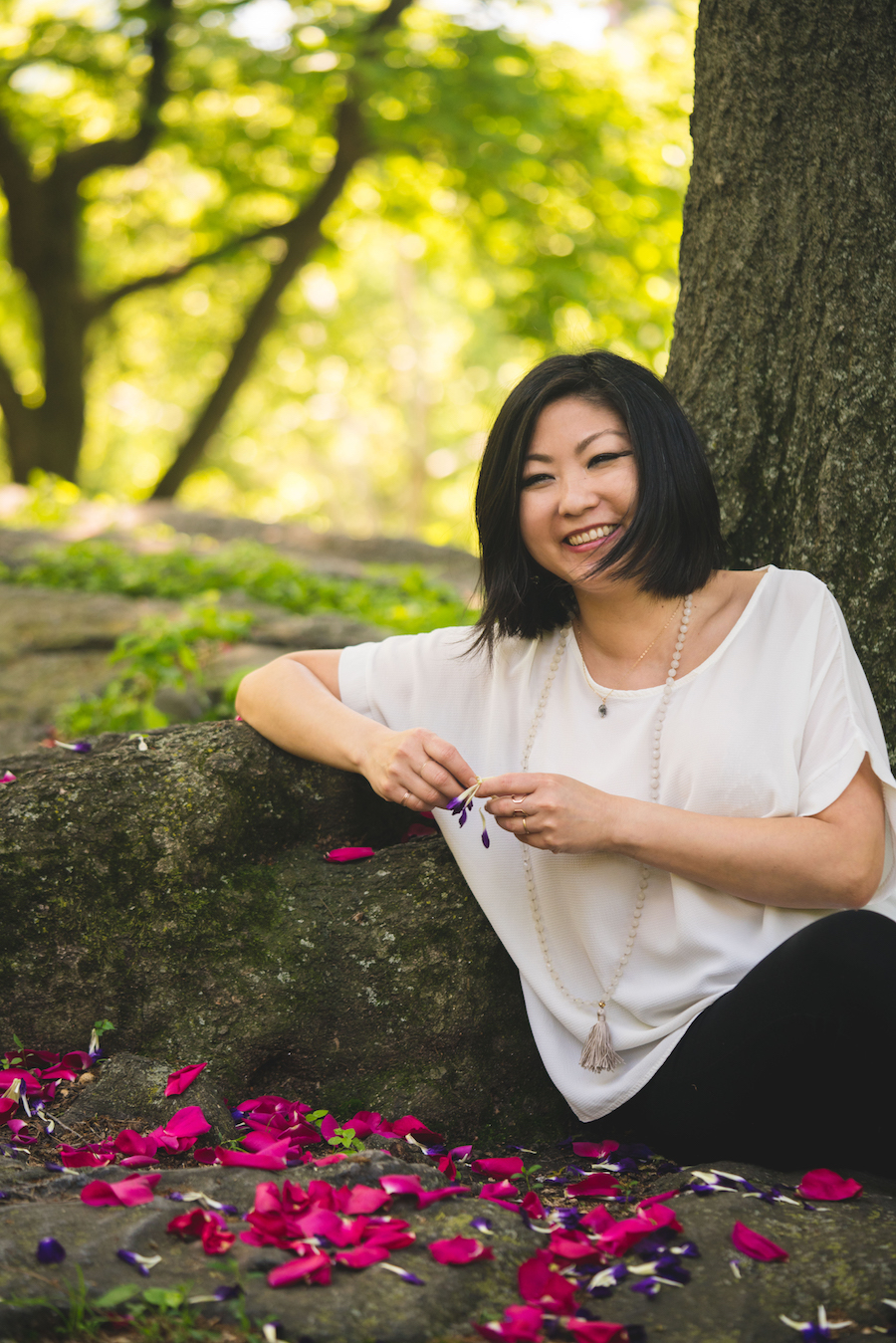
Anjie Cho is a creator of holistic spaces, specifically focused on designing architectural interiors, and teaching Feng Shui and meditation. She is the author of Mindful Homes and Holistic Spaces.
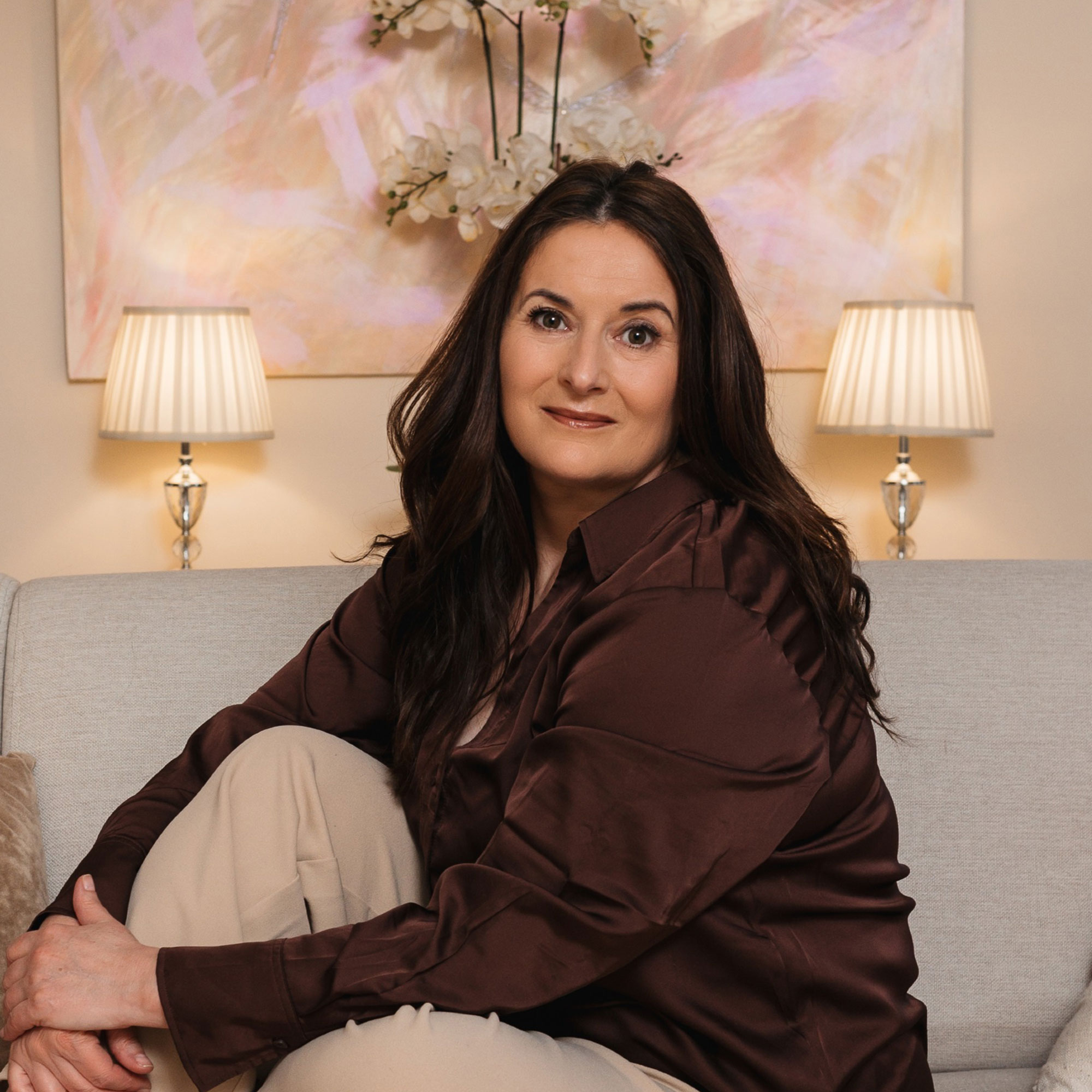
Suzanne is an Interiors Therapist, Feng Shui consultant, and author of Welcome Home, how stuff makes or breaks your relationship (at Amazon). She specializes in understanding the energetic impact of homes and certain possessions may have on all aspects of life, health and relationships, and the ways in which ‘stuff’ can actively prevent people and families from thriving and enjoying the lifestyle they deserve.
Best locations for peace lilies according to Feng Shui
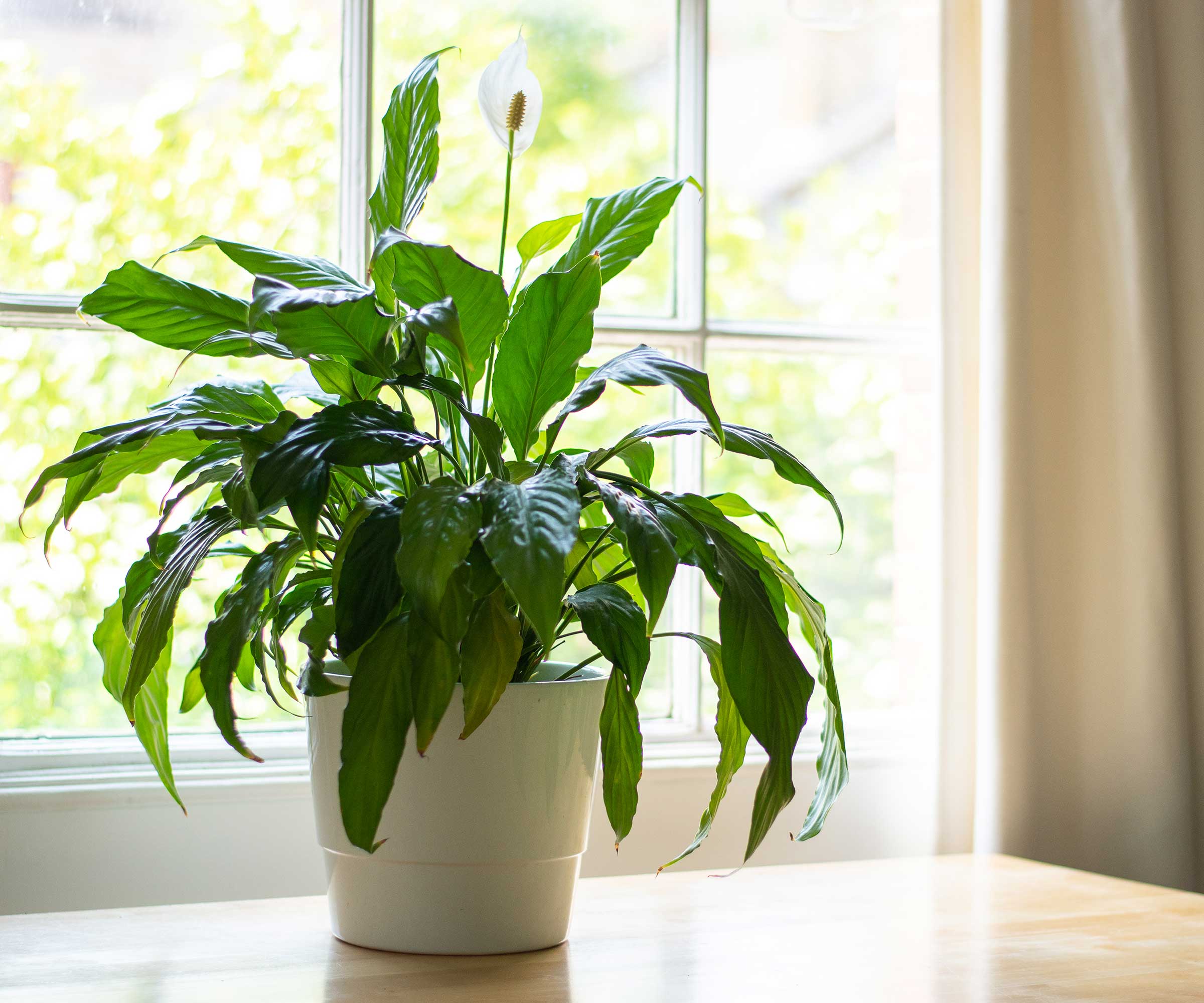
To maximize the value of peace lilies, it’s important to strategically position them to align with the energy you want to enhance in your life. This intentional placement helps balance the flow of chi (energy) and supports various areas of your home.
Suzanne Roynon explains, ‘The ideal location for plants in a home will depend on the home’s specific energy. Each home is unique and there will be some really excellent positions for living plants, and some which are not so auspicious. If you have had a professional assessment of your Feng Shui, then the best areas for plants will always be those which require either Fire or Wood energy.'
To place your peace lily with intention, consult the Bagua map, which divides your home into nine areas, each representing different aspects of life. For peace lilies, the most auspicious placements are in areas associated with growth, vitality, and prosperity. The Family (East) and Wealth (Southeast) areas of the Bagua are ideal for these plants, as they are linked to renewal and abundance.
By thoughtfully selecting the right location for your peace lily, you not only enhance the positive effects of the plant itself but also support the overall flow of positive energy in your home, maximizing its auspicious value.
The entryway
As the first place you and your guests enter when visiting your home, the entryway Feng Shui is important, and therefore is an excellent location for a peace lily, as it welcomes fresh energy into the home. Peace lilies symbolize tranquility, harmony and abundance, which, according to Feng Shui, are especially important in the entryway.
Placing it near the front door or along a corridor will mean that revitalizing chi can flow freely through your space, creating a more inviting, positive atmosphere.
Also, if you have a narrow entryway or hallway that feels cramped or has sharp corners – which are known as “poison arrows” in Feng Shui – the soft, round leaves of a peace lily can help to counter balance this energy, making the space feel more welcoming and less harsh.
The living room
‘A peace lily in the living room can support more peace and harmony in the family,' says Anjie Cho.
In living room Feng Shui, a Peace Lily is best placed near a window with indirect light, particularly in areas associated with family, health, or wealth on the Bagua map. This positioning promotes harmony, relaxation, and prosperity while also improving air quality.
Be mindful not to overcrowd the space with too many plants, as this can create stagnant energy.
The kitchen
In kitchen Feng Shui, a peace lily can be positioned on a countertop, near the dining area, or in the prosperity corner (southeast). This placement symbolizes nourishment, abundance, and balance.
However, avoid placing it too close to the stove, as excessive heat can stress the plant.
The home office
For home office Feng Shui, a peace lily can be a powerful addition when placed near your desk or in the wealth (southeast) or knowledge (northeast) areas. In Feng Shui, plants with rounded leaves, like the peace lily, are said to enhance the wealth and abundance sector of your home, so when placing this plant with intention in your office, place it in the south west corner.
When placed in the north east corner, its presence enhances focus, creativity, and productivity while maintaining a fresh and energized atmosphere.
The bathroom
‘A peace lily could be wonderful for a Feng Shui placement in the bathroom to mitigate draining water element,’ says Anjie Cho.
In bathroom Feng Shui, a peace lily thrives in a spot away from direct water exposure. As one of the best plants to absorb moisture from the air while counterbalancing the excess water energy associated with this space.
Where to place a peace lily to keep it thriving
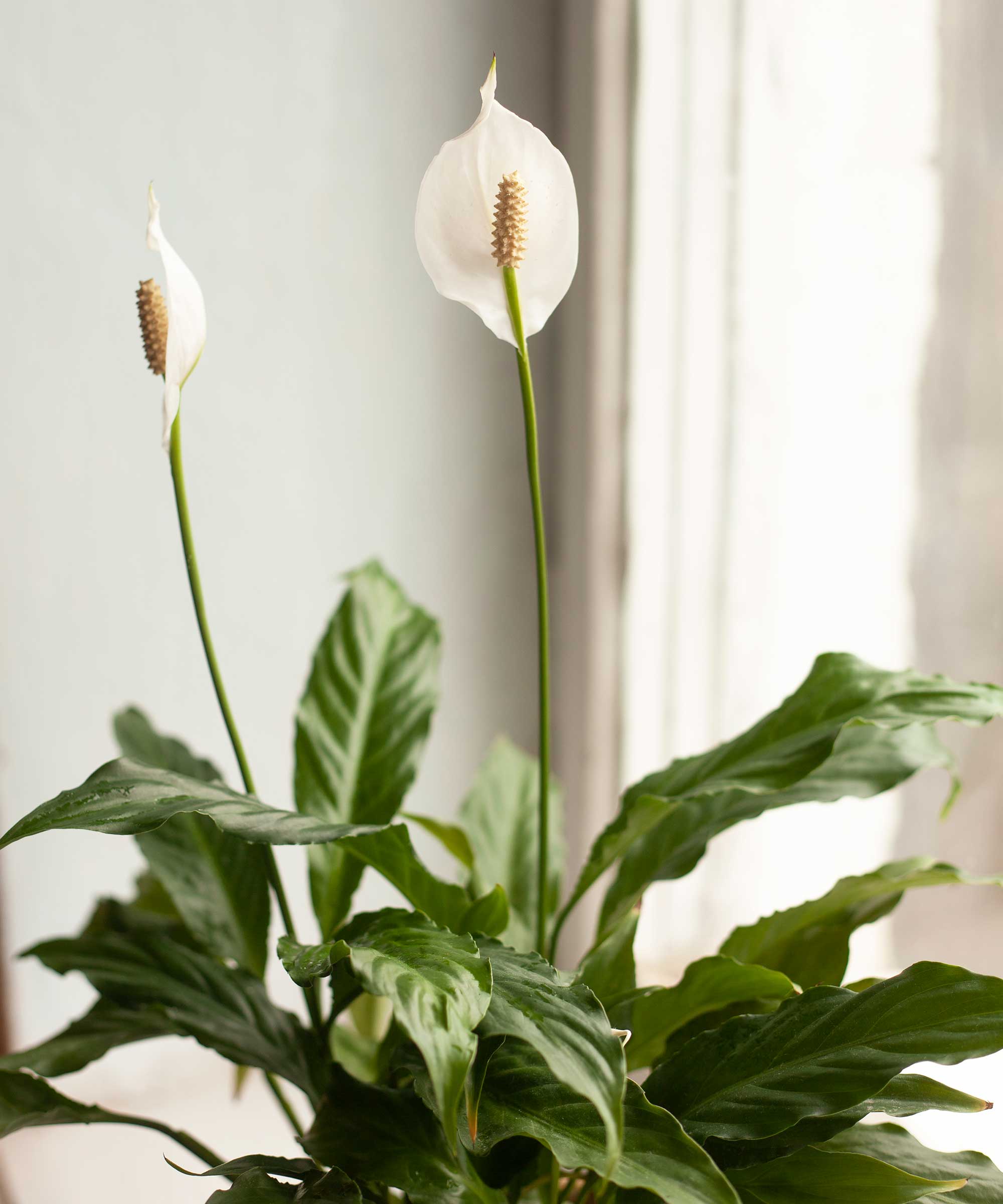
To keep your peace lily thriving and contributing to positive energy in your home, Suzanne Roynon emphasizes the importance of maintaining the plant’s health. 'The crucial thing is to keep them healthy, because any sick or dying plant, regardless of type, will create negative energy in the home. However, too many plants can also create stagnation.
‘Fortunately the peace lily can tolerate quite low light levels, so it is possible to use them in spaces which receive limited natural light, but they won’t thrive in a room with no windows at all.' Place your peace lily in a spot with indirect light to support its growth and vitality.
FAQs
Where should you not place a peace lily according to Feng Shui?
While peace lilies can enhance positive energy in many areas of the home, Feng Shui expert Suzanne Roynon advises against placing them in certain locations.
'The only area we strongly recommend not placing any plants this year is the Northeast, as this is the location of the negative "annual 5" star in 2025, which can be detrimental to plants,' she explains.
Additionally, Feng Shui does not typically encourage plants in bedrooms. While plants improve air quality, their active growth energy may lead to restless sleep or a sense of unease. 'By all means, experiment with having a peace lily in your bedroom, but if you find yourself feeling unsettled, it’s best to relocate it to another living area,' Suzanne advises.
Feng Shui expert Hannah Yang advises: ‘If you want your peace lily to really thrive, send it some well wishes from time to time. Plants contribute positively to the energy around you, but also respond to the energy around them. If you have positive wishes for your peace lily, it's more likely to thrive.’
By thoughtfully placing your peace lily in the right areas of your home, you can maximize its ability to purify the air, uplift the energy, and bring balance and vitality into your living space.

Visionary and healthcare entrepreneur by passion, Licensed Psychologist by training, Dr. Hannah Yang loves creating new possibilities in the world of mental health and wellness. Dr. Yang established Balanced Awakening in 2015 as a niche psychotherapy practice for women. She loves to empower women to be their best selves in all facets of life. Hannah also loves to tap into her passion for design and Feng Shui to create fabulous environments for herself, her team, and her clients.
Sign up to the Homes & Gardens newsletter
Design expertise in your inbox – from inspiring decorating ideas and beautiful celebrity homes to practical gardening advice and shopping round-ups.

Lola Houlton is a news writer for Homes & Gardens. She has been writing content for Future PLC for the past six years, in particular Homes & Gardens, Real Homes and GardeningEtc. She writes on a broad range of subjects, including practical household advice, recipe articles, and product reviews, working closely with experts in their fields to cover everything from heating to home organization through to house plants. Lola is a graduate, who completed her degree in Psychology at the University of Sussex. She has also spent some time working at the BBC.
You must confirm your public display name before commenting
Please logout and then login again, you will then be prompted to enter your display name.
-
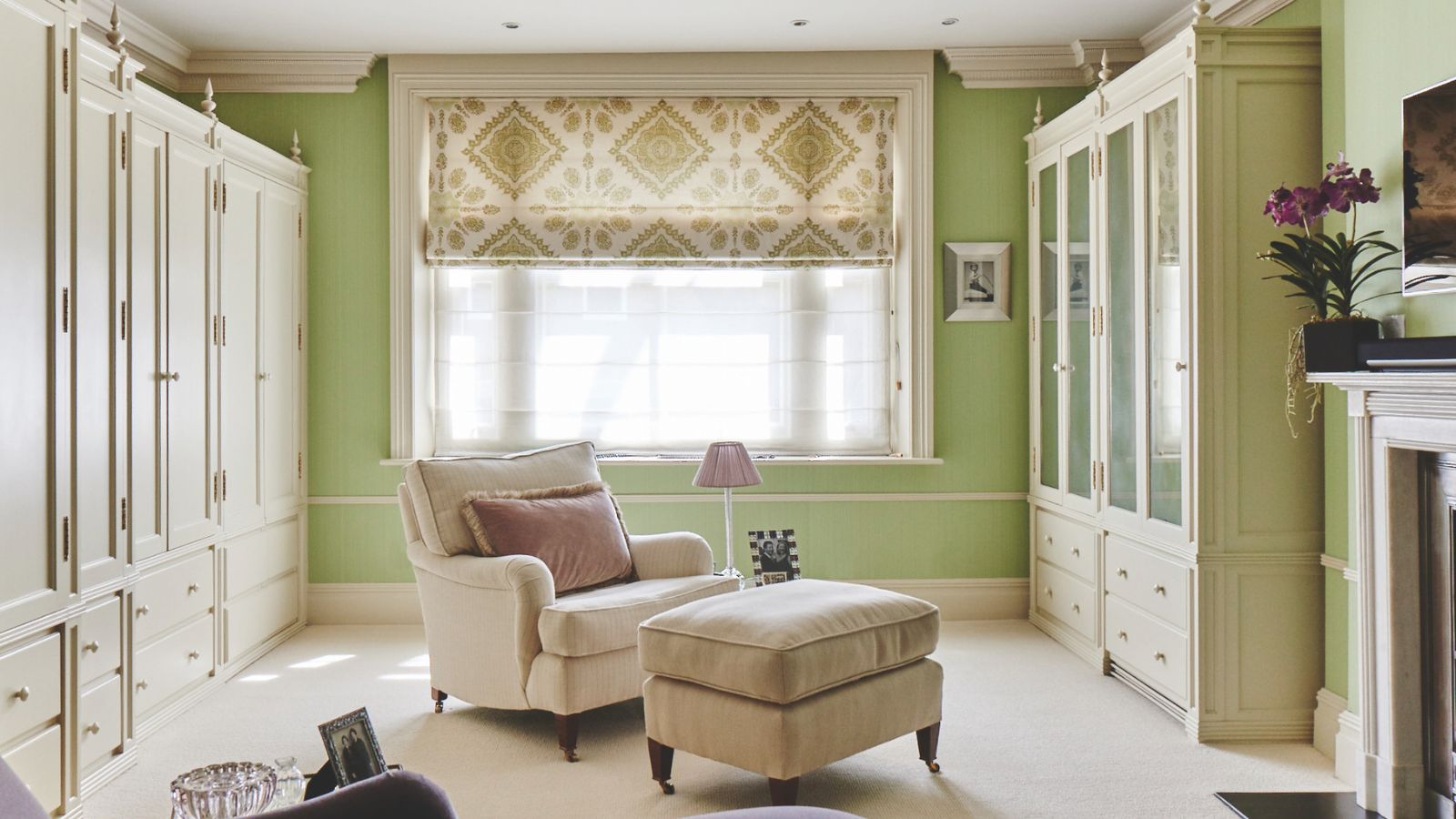 7 expert-approved painting hacks to minimize clean up – to make an already exhausting task easier
7 expert-approved painting hacks to minimize clean up – to make an already exhausting task easierAvoid a backbreaking clean-up after your next painting project with advice from the professionals
By Chiana Dickson
-
 Gwyneth Paltrow's quiet luxury kitchen is so beautiful, we almost overlooked her ultra-smart cabinets – they make the use of 'every inch' of storage space
Gwyneth Paltrow's quiet luxury kitchen is so beautiful, we almost overlooked her ultra-smart cabinets – they make the use of 'every inch' of storage spaceThe Goop founder makes use of dead space in her kitchen with customized cabinetry that reaches to the ceiling, providing ample storage
By Hannah Ziegler